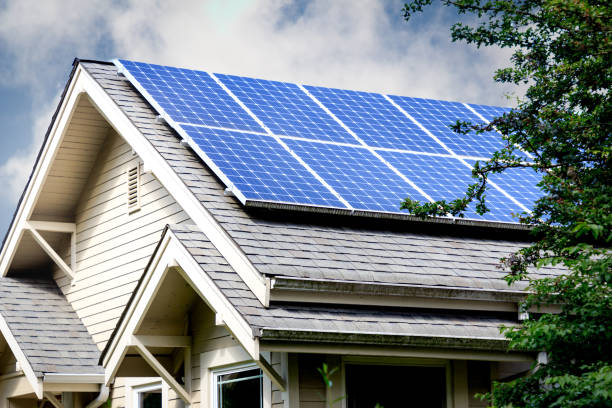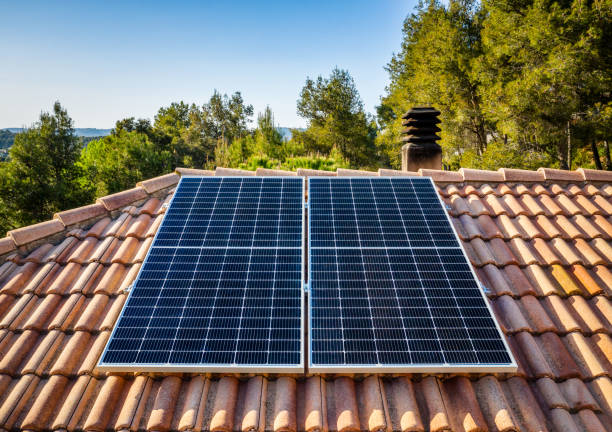If you ever find yourself in the middle of a blackout, solar batteries are a great option for home energy storage because they enable you to set up emergency power backup systems.
The first question you’re likely to ask yourself is, “What is the lifespan of solar batteries?” You don’t want a battery that needs to be changed before it pays for itself!
The lifespan of solar batteries will be thoroughly discussed in this article, along with all of the factors that affect it.
How Long Do Solar Panel Batteries Last?
Home solar battery systems can last for 5 to 15 years. The lifespan of your solar power system is 20 to 30 years, so if you choose to install a solar battery today, you’ll almost certainly need to replace it later.
Factors That Affect the Lifespan of Your Battery
Solar Battery Type
Lead-acid batteries have been used in off-grid energy systems for decades, and while they’re one of the least expensive options on the market, lead-acid batteries have a shorter lifespan, and lower depth of discharge (In contrast to lithium-ion batteries, the DoD. The opposite of charging, a battery’s DoD measures how much power it can discharge in relation to its total kilowatt-hours (kWh) capacity.
When it comes to home energy storage systems, lithium-ion batteries are the gold standard because they’re lighter, more compact, have a longer lifespan, and are higher than lead-acid batteries for the DoD. The price of lithium-ion batteries has also dropped due to increased demand by 85%, making solar power backed by solar storage even more affordable.
Unlike lead-acid and lithium-ion batteries, saltwater batteries don’t contain heavy metals and instead rely on saltwater electrolytes. Because of this, saltwater batteries are easier to recycle and become more environmentally friendly.
Saltwater batteries are still in some ways an emerging technology. Lithium-ion batteries will provide the most dependable source of power if you want to make the most of your solar energy potential.
Solar Battery Usage
A solar battery’s lifespan is primarily influenced by how often it is used. Thankfully, most solar batteries are deep-cycle batteries, which enable them to discharge up to 80% of their stored energy before recharging.
Before recharging, some battery banks require manual discharge. With Brightbox, your solar battery charges automatically to avoid overcharging and to ensure your battery stays healthy and efficient for as long as possible.
Solar Battery Temperature
Where you install your home’s battery storage system can have a significant impact on your quality of life, depending on where you live. This is because maintaining your battery unit at the ideal temperature will maximize its life and effectiveness.
For instance, if you reside in a region with mild or moderate temperatures, your battery might be installed outside. Whereas, in regions with harsh temperatures, your battery will perform optimally only if it’s installed in your garage or basement
Solar Battery Warranty
Manufacturers of solar batteries provide a variety of warranties for their battery goods. Lead-acid batteries typically have shorter warranties than lithium-ion batteries, which typically have warranties of 10 years or more.

Solar Battery Maintenance
The least complicated to maintain batteries are lithium-ion ones. Take a State of Charge reading from time to time. Your battery’s ability to maintain a charge will be revealed by this. After that, check your cables and terminals to make sure everything is tight and secure. In order to prevent your battery from producing additional heat, dust it off.
Because there are two different types of lead-acid batteries to take into account, lead-acid batteries are a little more complicated. Lead-acid batteries come in two varieties: sealed batteries and flooded batteries.
All that is necessary to maintain sealed lead-acid batteries is the occasional multimeter check of the charge level. Act in this manner when the battery is not being used. Check cables and terminals next, and secure any loose connections. Do not forget to dust the battery.
For best results with flooded lead-acid batteries, you should check your battery every two to four weeks. Since water levels will eventually decrease, only refill with distilled water. Do not fill past the maximum level line.
Verify the charge’s status with a refractometer. Checking the battery’s ability to maintain a charge after a full charge cycle is important. Every one to three months, perform a controlled overcharge to make sure your cells are charging equally.
How Often You Use the Batteries
After a few years, you’ve probably noticed that the battery on your laptop or smartphone won’t last as long before needing to be recharged. Initially, a fully charged battery might have had a 12-hour lifespan. Now, it lasts three.
Although this is annoying, it is a fact of life with batteries. Your battery will hold a charge for a shorter period of time if you charge and discharge it more frequently. Your batteries won’t be able to store and discharge enough energy after a certain number of cycles to make their use worthwhile.
The lifespan of batteries varies greatly because of this. It depends on how frequently each solar owner uses them, not how long ago they were installed. Batteries won’t last as long if you have an off-grid system that runs on battery power every night as opposed to a grid-tied system that only uses batteries when the power goes out.
Paying attention to the manufacturer’s suggested depth of discharge, or DoD can help your batteries last longer. DoD is the percentage of battery energy that you actually use. Take the case where your battery has a 13.5 kWh capacity and you only use 10 kWh of it. 74% of the discharge would be below the surface.
DoD is crucial because exceeding the recommended DoD for your battery can significantly reduce its lifespan. Every battery type will have a recommended maximum DoD that the manufacturers will assign.
How Do I Know If My Solar Battery is Bad?
You’re more likely to find that your solar battery has failed over time. Check it out visually before discarding it. Be on the lookout for cracked or ruptured terminals, leaking, discoloration, and other issues.
Broken terminals typically signify a short circuit has taken place. Your battery is in dangerous condition if it has broken terminals, so you should replace it right away. Overcharging is indicated by the casing bulging or bumping. The charge controller is likely to be at fault in this situation. The battery has significantly deteriorated if you discover any cracks or ruptures.

How Long Do Solar Panels Last?
The typical lifespan of solar panels is 25–30 years. A solar panel will degrade over time, just like any other technology. With a 0.5% annual degradation rate, the majority of solar panels on the market today will still be producing at 90% of their capacity after 20 years of use. As a result, the panels may continue to produce energy even after 50 years, albeit at a lower rate than when they were first installed. Your solar panels may last even longer than anticipated with proper upkeep and cleaning.
Additionally, you should work with a solar company that can provide your system with extra security measures like extended warranties, insurance, or maintenance contracts. Solar panels are very strong and should last for many years. The solar panel systems from Pineapple Energy have a 25-year performance warranty. We continue to have enduring connections with our clients throughout that time. Throughout the solar panel system’s lifetime, we will maintain and care for it. Our 25-year production guarantee offers customers the assurance that their investment is safe.
Do Solar Panels Need to Be Cleaned?
Solar panels are simple to maintain but to ensure stable production, you should have them cleaned once a year. Your production may be hampered if you reside in a dusty area, in which case you should have them cleaned more frequently. By monitoring your energy usage and bills month after month, you can keep an eye on the performance of your system. It may be time to clean your solar panels if your electric bill starts to rise. Your solar panels will most likely receive the proper amount of cleaning and generate an abundance of energy if you live in a rainy area. In order to address any issues as soon as they arise, it is crucial to monitor your solar production using your monitoring app.
Panel cleaning services are provided annually or biannually by a wide variety of businesses. An additional option for those who like to do things themselves is to buy an extendable pole and a window cleaning tool. This should be sufficient to take care of any panel cleaning requirements your system has, along with a garden hose. The best solution is plain water because stronger chemicals can adversely affect your solar panels. You should clean your solar panels on cloudy days and when it’s cold outside because they get hot.
Knowing how long solar batteries last as well as how long solar panels last enables you to take preventative measures to care for your solar battery, extending its lifespan past the 10-year warranty.
Final Thought
The solar batteries in your solar system are expected to last 5 to 15 years, so they’ll probably need to be replaced at least once during that time. However, if you use your battery properly, choose high-quality items with solid manufacturer warranties, and install the battery in a climate-controlled environment, you can be sure it will last a long time.
